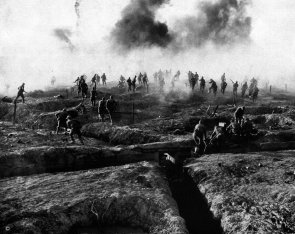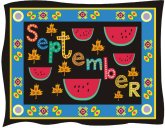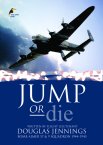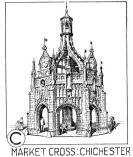Topic: Poetry and Poets
The English poet, Wilfred Owen, was born 112 years' ago, on the 18th March 1893, in Oswestry, Shropshire, United Kingdom. He enlisted in the army in 1915 and fought as an officer in the Battle of the Somme. In May 1917, he was hospitalised for shell shock and during his convalescence, met Siegfried Sassoon, the poet and novelist. They became firm friends and Sassoon took him under his wing, guiding and influencing him with his writing. It is thanks to Sassoon that Wilfred Owen's war poems were eventually published.
The horrors of war and Wilfred Owen's own sense of outrage at the senseless waste of life permeate through his work. Sadly, his war poems often seem to echo what is happening in today's battle zones and only serve to emphasis the futility of war. Something that human beings, whom I once dubbed 'Homo Hostilis' (a mutated form of 'Homo Sapiens') never seem to learn! Sadly, Owen was killed in action on 4th November 1918 - just seven days before the end of hostilities. This is one of his dark poems, penned in 1917:
ANTHEM FOR DOOMED YOUTH What passing-bells for these who die as cattle?
Only the monstrous anger of the guns. Only the stuttering rifles' rapid rattle Can patter out their hasty orisons. No mockeries for them; no prayer nor bells, Nor any voice of mourning save the choirs? The shrill, demented choirs?of wailing shells; And bugles calling for them from sad shires. What candles may be held to speed them all? Not in the hands of boys, but in their eyes Shall shine the holy glimmer of good-byes. The pallor of girls' brows shall be their pall; Their flowers the tenderness of patient minds, And each slow dusk a drawing-down of blinds. |
 |




